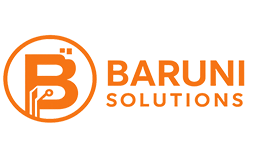Trusted by startups and Fortune companies
Industries We Serve with Our Adaptive AI Development Solutions
Unlock the transformative potential of custom Adaptive AI Solutions across diverse industries, empowering our clients to lead their markets with innovation and creativity

Ready to Innovate?
Let's co-create groundbreaking products together, merging your vision with our expertise for unparalleled results.
Contact UsOur Technical Expertise
Our digital transformation team excels in a wide range of technologies, including AR/VR, DevOps, and AI/ML. Our consultants possess deep knowledge and experience in the following core areas:

Digital Transformation Solutions Company
We empower businesses worldwide to scale, transform, and achieve a competitive edge through the expert delivery of innovative digital transformation services. Our industry recognition is built on the following unique selling points:
- Featuring India's Top 1% Software Talent
- Trusted by Startups to Fortune 500 Companies
- Comprehensive Services from Idea to Deployment
- Time-Zone Friendly with a Global Presence
- Adherence to Top-tier Data Security Protocols
- Guaranteed On-time Delivery with No Surprises
Ready to Innovate?
Let's co-create groundbreaking products together, merging your vision with our expertise for unparalleled results.
Contact UsUser Guide to Understand Digital Transformation
Guide Topics
An Introduction to Digital Transformation Services

Digital transformation services encompass a range of strategies, technologies, and solutions aimed at helping businesses adapt and thrive in the digital age. By leveraging technology, these services reshape processes, operations, and customer experiences to meet the evolving demands of the digital landscape.
Digital transformation services assist organizations in harnessing the full potential of digital technologies to drive innovation, increase agility, and achieve sustainable growth. This holistic approach encompasses customer engagement, operational efficiency, employee empowerment, and evolving business models.
At its core, digital transformation enables businesses to reimagine traditional practices and leverage emerging technologies to create new opportunities and deliver enhanced value to customers. This involves utilizing data analytics, cloud computing, artificial intelligence, the Internet of Things (IoT), and other digital tools to optimize processes, enable data-driven decision-making, and deliver personalized experiences.
These services include initiatives such as adopting cloud-based solutions, automating manual processes, implementing robust cybersecurity measures, and developing digital platforms for seamless customer interactions. Digital transformation supports integrating digital technologies into every aspect of an organization, fostering a culture of innovation and continuous improvement.
By embracing digital transformation consulting, businesses can unlock numerous benefits, including improved operational efficiency, enhanced customer experiences, accelerated time-to-market, increased competitiveness, and the ability to quickly adapt to market changes. Moreover, these services empower organizations to embrace new business models, expand into new markets, and cultivate a digital-first mindset.
In summary, digital transformation services act as a catalyst for organizational evolution, enabling businesses to thrive in the digital era. By embracing the power of technology and innovation, organizations can drive profound change, unlock new opportunities, and position themselves for long-term success in an increasingly digital world.
Reasons to Outsource Digital Transformation Services to India
Outsourcing digital transformation services to India offers several benefits:
- Cost Savings: India is known for its low labor costs, helping you save money on digital transformation projects.
- Quality Services: Indian companies provide high-quality services, ensuring the success of your critical projects.
- Access to Top Talent: India is home to some of the world’s best IT talent, accessible through outsourcing.
- Fast Turnaround Times: Indian companies can often complete projects quickly, reducing your time-to-market.
Advantages of Digital Transformation

The benefits of digital transformation are vast and include:
- Increased Efficiency and Productivity: Digital systems enable employees to work faster and more efficiently, boosting productivity and improving bottom lines.
- Greater Competitiveness: Embracing digital transformation helps businesses offer new products and services, improving the customer experience and staying competitive.
- Enhanced Security: Digital systems are more secure than traditional ones, reducing vulnerability to cyber-attacks.
- Reduced Costs: Automation and digital processes reduce the need for manual input, lowering operational costs.
- Improved Compliance: Digital systems ensure adherence to government regulations and industry standards, leading to more secure and efficient operations.
Things to Consider While Hiring Digital Transformation Consultants

When hiring digital transformation consultants, consider the following:
- Experience with Digital Transformation Projects: Ensure the consultant has a proven track record of successful digital transformation projects.
- Industry Expertise: Look for consultants with deep domain knowledge in your industry (e.g., retail, manufacturing, finance).
- Methodology and Approach: The consultant should use a well-defined methodology and tailor it to your specific needs.
- Strong Team with Diverse Skill Sets: Ensure the consultant has a team of experts in technology, marketing, operations, and strategy.
- Resources and Tools: The consultant should have access to the latest resources and tools needed for the project.
Steps of a Successful Digital Transformation Journey

A successful digital transformation journey typically involves:
- Define the Vision and Strategy: Establish a clear vision aligned with business goals, including specific objectives and KPIs.
- Assess Current State: Conduct a comprehensive assessment of your current technological landscape, processes, and cultural readiness.
- Develop a Roadmap: Create a detailed roadmap outlining initiatives, projects, and milestones based on the assessment.
- Build the Digital Transformation Team: Assemble a dedicated team with diverse expertise in technology, change management, and data analytics.
- Invest in Technology Infrastructure: Evaluate and invest in necessary digital technologies and infrastructure.
- Foster a Culture of Innovation: Encourage innovation, experimentation, and continuous learning within the organization.
- Execute and Iterate: Implement initiatives according to the roadmap, monitor progress, collect feedback, and make necessary adjustments.
- Engage Stakeholders: Involve stakeholders at all levels, communicate the vision, and solicit feedback.
- Measure and Monitor Performance: Track progress against metrics and KPIs, and evaluate the impact of the transformation.
- Continuously Innovate: Embrace continuous innovation and improvement, staying updated with emerging technologies and market trends.
Technologies Used for Digital Transformation
Key technologies driving digital transformation include:
- Cloud Computing: Provides scalability, flexibility, and cost-efficiency for data access, application hosting, and collaboration.
- Big Data Analytics: Extracts insights from large data sets to drive decision-making and business optimization.
- Artificial Intelligence (AI) and Machine Learning (ML): Automates tasks, enhances customer interactions, and optimizes processes.
- Internet of Things (IoT): Connects devices for real-time information gathering, monitoring, and optimization.
- Robotic Process Automation (RPA): Automates repetitive tasks, reducing errors and improving efficiency.
- Mobile Applications: Enhances customer experiences and enables digital interactions across various industries.
These technologies enable organizations to reimagine processes, improve decision-making, enhance customer experiences, and drive innovation.
Measuring the Success and ROI of a Business’s Digital Transformation Efforts
To measure the success and ROI of digital transformation efforts:
- Define Clear Objectives and KPIs: Establish specific goals and relevant metrics.
- Track Quantitative Metrics: Monitor financial, operational, and customer engagement metrics.
- Analyze Cost Savings and Efficiencies: Measure cost reductions and efficiency improvements.
- Assess Customer Experience and Satisfaction: Evaluate customer satisfaction metrics and behavioral changes.
- Evaluate Employee Engagement and Productivity: Measure changes in employee performance and collaboration.
- Conduct Comparative Analysis: Compare pre- and post-transformation performance.
- Gather Qualitative Feedback: Collect feedback from stakeholders on their perceptions and experiences.
- Align Results with Business Goals: Relate measured results to initial objectives.
- Regularly Review and Adjust: Continuously refine the strategy based on insights and feedback.
Choose From Our Hiring Models
At Baruni Solutions, you can choose from multiple hiring models that best suit your needs.

Dedicated Team
(also known as product engineering
teams)
This expert autonomous team comprises various roles such as project managers, software engineers, QA engineers, and others, capable of delivering technology solutions rapidly and efficiently. Roles are defined for each specific project, and management is conducted jointly by a Scrum Master and the client's product owner.

Team Augmentation
also known as team extension or staff augmentation)
Suitable for businesses and projects of any scale, team augmentation helps add the required talent to your team to fill the talent gap. The augmented team members integrate into your local or distributed team, attending regular daily meetings and reporting directly to your managers. This model helps businesses scale immediately and on-demand.

Project Based
(best suited for small-mid scale projects)
When project specifications, scope, deliverables, and acceptance criteria are clearly defined, we can evaluate and offer a fixed quote for the project. This model is mostly suitable for small-mid scale projects with well-documented specifications.
Time & Material Model:This model is suitable for projects with undefined or dynamic scope requirements or complicated business needs where cost estimation is not possible. Developers can be hired based on their time.
Frequently Asked Questions
- Our business domain knowledge
- Proven methodologies
- Technology expertise
- Cost-effective solutions
- A team of 650+ software development experts
Client Feedback on Our Services
We sincerely appreciate the trust our clients place in us and take pride in providing quality solutions that surpass their expectations. Here's what some of them have to say about their experiences:






